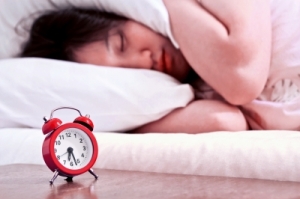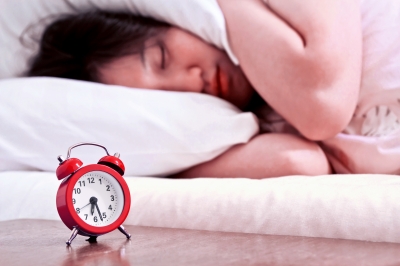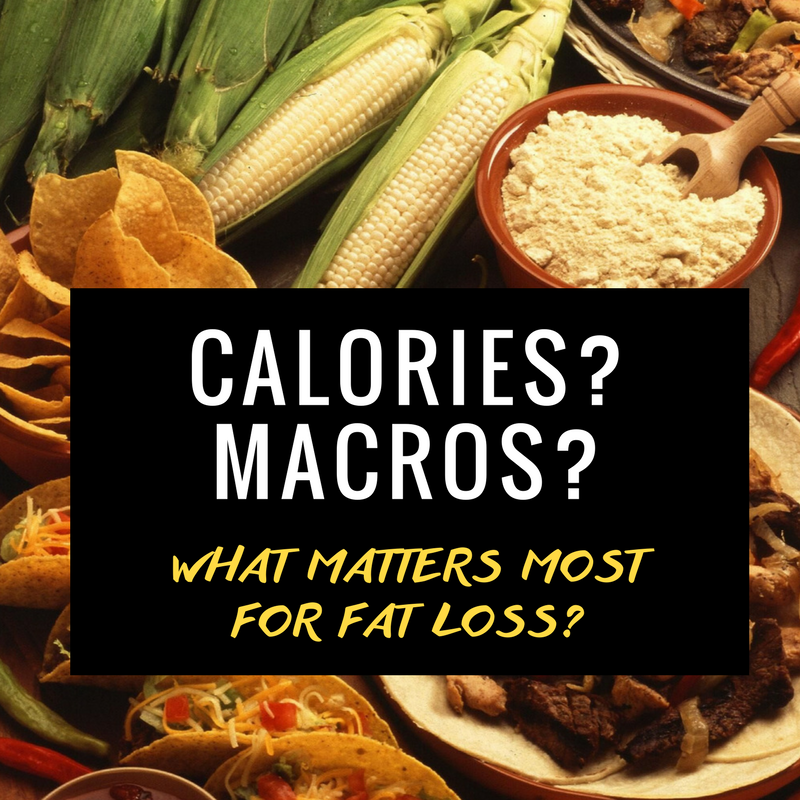 I don’t know anyone who doesn’t enjoy a good night’s sleep. But for some, getting 8 hours sleep has become an unaffordable luxury, taking a back seat to what are perceived to be more important tasks. Sleep is now just an afterthought where we simply ‘get by’ on a few hours for as long as we can before finally crashing or we play catch up on the weekends. Many of us don’t know or minimize the role sleep plays not only with our fitness goals, but our overall health. Racking up a sleep debt should be avoided as much as possible.
I don’t know anyone who doesn’t enjoy a good night’s sleep. But for some, getting 8 hours sleep has become an unaffordable luxury, taking a back seat to what are perceived to be more important tasks. Sleep is now just an afterthought where we simply ‘get by’ on a few hours for as long as we can before finally crashing or we play catch up on the weekends. Many of us don’t know or minimize the role sleep plays not only with our fitness goals, but our overall health. Racking up a sleep debt should be avoided as much as possible.
Your Body on Too Little Sleep
It’s important to understand what activities (oh, yes, things are happening) take place when we sleep to better understand why we need it in adequate amounts. During our deepest sleep, our muscles relax and our energy is restored. It’s during this stage that HGH (Human Growth Hormone) is released and tissue growth and repair occurs, including muscle development.
When our bodies are robbed of sleep we put our immune system at risk, impacting its ability to fight bacterial infections like the common cold. Short term memory, alertness and our decision-making ability decrease as well as our energy level. When sleep is missed long enough, it has been shown to be a risk factor for increased high blood pressure, heart disease, and type 2 diabetes.
How Sleep Debt Impacts Your Fitness
When we talk about fitness most likely the first topics to spring to mind are exercise and nutrition. Rarely, if ever, do you hear someone ask how much sleep they should be getting. Granted, when it comes to fitness exercise and nutrition are major factors, however when you are slacking on your napping, you put both your performance and nutrition goals at risk.
Hormone Mayhem When our sleep is routinely shortchanged, our hormones get out of whack. Hormones like cortisol, the stress hormone, are elevated and can increase our cravings for comfort foods (aka high fat/sugar foods). Grehlin, the hunger hormone, is increased while leptin, the satiety hormone, is decreased. When you add that all up you have a sleep-deprived, comfort food-seeking zombie who can’t tell if they are hungry or full. Even the strongest-willed person can be undone in the kitchen when faced with that hormone brew. More often than not this results in an energy imbalance leading to weight gain.
Earlier we mentioned that HGH is released in large quantity during deep sleep. When that period is cut short, muscle growth and development can be impacted. What could be worse than giving your best effort in the gym yet only reaping half the reward.
Inconsistent Effort When the alarm goes off after 4 or 5 hours of sleep it is very tempting to hit the snooze button 2, 3, 4 or more times before you force yourself to get out of bed. Early morning exercisers will likely miss scheduled training to get a few more zzz’s. If you train later in the day it is probably equally as tempting to head home after a long day of work rather than the gym. String a few missed workouts together and you are bound to see an impact on your progress.
Injury Risk Decreased alertness means increased risk of injury. If you do happen to make it to the weight floor of your gym, your chance of getting hurt increases greatly with decreased alertness.
Poor performance Let’s face it, when you are dragging yourself around all day because you’re sleepy, it’s hard to be at your best and that includes when you’re training. When we give our bodies adequate rest, our hormones are better balanced which is likely to leave us feeling patient and even-keeled and with more energy.
Getting more shut eye
The Centers for Disease Control & Prevention recommends 7-8 hours of sleep each night. Establishing a bedtime routine can help with getting your mind and body ready for sleep. Here are some ways to increase your chance of reaching that optimal level of sleep on a regular basis:
Avoid big meals and stimulants before bedtime If you have trouble falling asleep because of tummy troubles, opt for lighter meals when it is close to bedtime. Digestion halts at night and occurs at a much slower rate than during the day. Limit consumption of stimulants later in the day which can make it harder to fall asleep.
 Set regular sleep and waking hours Going to bed and getting up at the same time helps to regulate our Circadian Rhythm – the 24-hour internal clock that controls our biological processes. Don’t try to make up for missed sleep on the weekend by sleeping in. It throws off our internal clock, upsetting the regular sleep pattern our bodies prefer.
Set regular sleep and waking hours Going to bed and getting up at the same time helps to regulate our Circadian Rhythm – the 24-hour internal clock that controls our biological processes. Don’t try to make up for missed sleep on the weekend by sleeping in. It throws off our internal clock, upsetting the regular sleep pattern our bodies prefer.
Dim the lights and shut off electronics Bright light delays the production of melatonin, a natural hormone which helps you sleep. Turn off the tv and silence electronics such as smart devices, which can impact getting a restful night’s sleep. Stay off social media. It gets your brain filled with information that’s not conducive to relaxing.
Find a comfortable temperature This tip can be a challenge, especially if you share your bedroom. The recommended optimal temperature range for sleep is anywhere from 60-67 degrees. While this will fluctuate according to personal preference, it’s a good reference point. Temperature regulation is important not only for comfortability purposes but because it also is closely related to our biological clock and circadian rhythm.
Wrap up
Next time you think about putting sleep at the bottom of your list of priorities, think twice. While some mornings it may be tempting to crawl out of bed to hit the gym after a poor night’s sleep, you may be better off catching those extra zzz’s. Sometimes skipping that workout to sleep reaps more benefits than dragging yourself to the gym.
When it comes to general health and fitness, sleep can be a game changer. Too little quality sleep increases risk factors for poor health conditions as well as impact your fitness progress. Sleep is fundamental to leading a healthy lifestyle. Start prioritizing sleep to keep progressing on your fitness journey.
Russell Forrester puts the criticality of sleep into perspective with this great TED talk. If you still think you are doing just fine on a few hours sleep, you’ll want to watch this.
Photo credit: feelart
Discover more from Eat More 2 Weigh Less
Subscribe to get the latest posts sent to your email.









Recent Comments